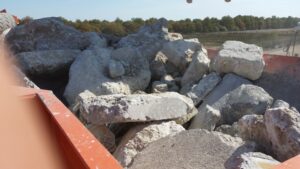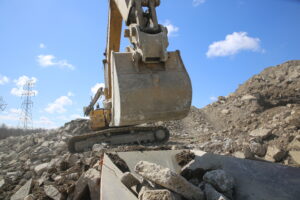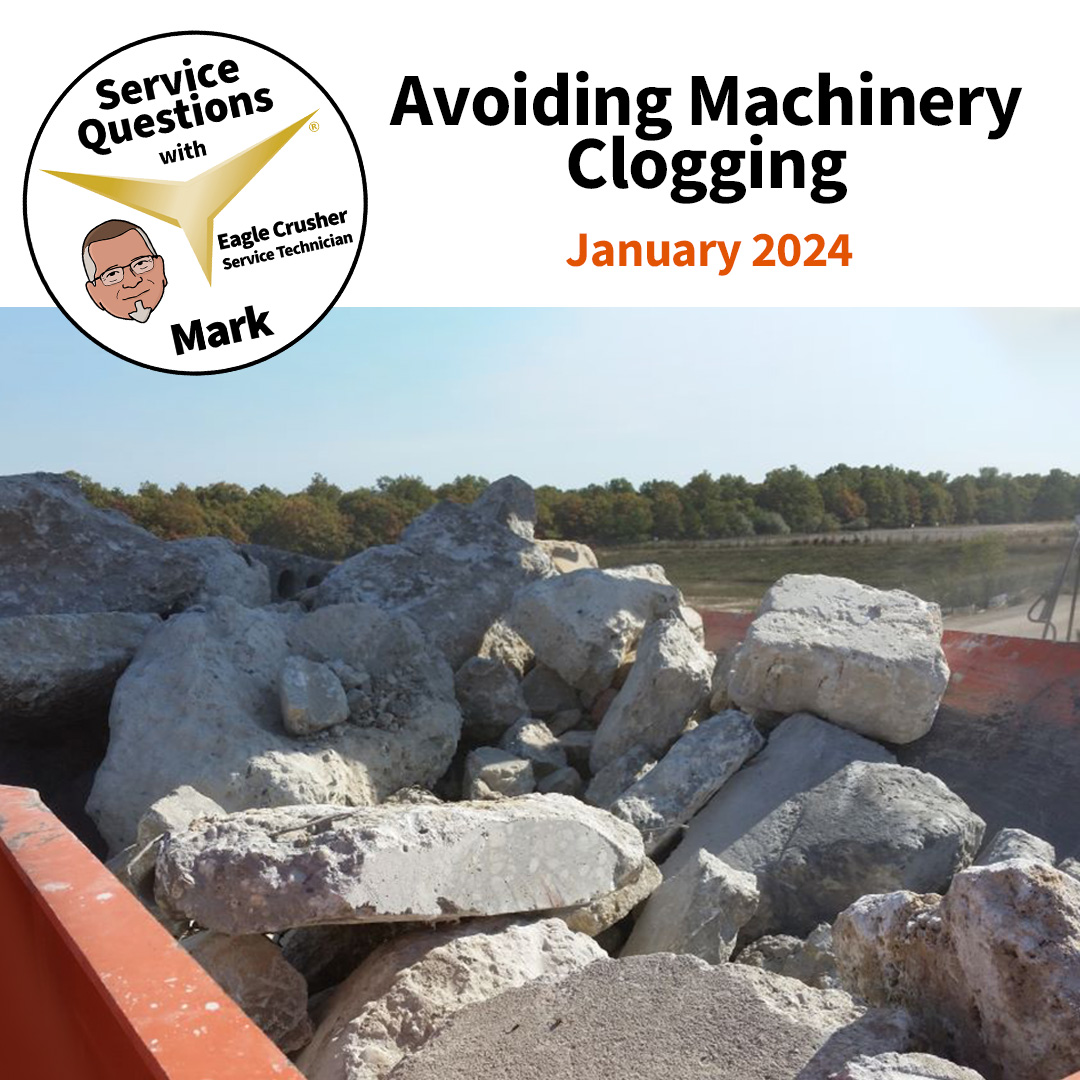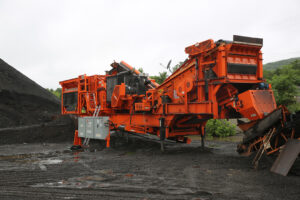Service Questions with Mark: Avoid Machinery Clogging
In the dynamic world of aggregate processing, concrete, asphalt recycling, and more, the efficiency of rock crushers plays a pivotal role in ensuring smooth operations. One common challenge that operators can encounter is the issue of clogs, leading to undesirable downtime. Learning the art of preventing clogs in your rock crusher helps you master a crucial skill in this industrial landscape. In this blog, we cover practical strategies and insights on how to navigate through the intricacies of rock crusher operation, increasing safety, minimizing downtime, and maximizing productivity. Let’s embark on a journey to unravel the secrets of seamless crushing and uninterrupted workflow with Eagle Crusher’s Service Technician, Mark.
Possible Clog #1 – Improperly Sized Materials in the Hopper
Material needs to be properly sized prior to being placed into the hopper for crushing. Putting material in the hopper that is too large may result in a clog, necessitating shutting the plant down, locking out and tagging out the plant as well as other related equipment, to be able to work to clear the issue.
Operators should consult their owner’s manual for information about impactor feed opening size. In general, the smaller the feed material, the less likely a jam will occur. Reach out to Eagle Crusher’s service department or your authorized dealer for more information based upon your specific scenario.

Possible Clog #2 – Improperly Sized Rebar
If your material has rebar in it, it is recommended to keep the rebar as short as possible prior to putting it into the crushing plant’s hopper. Operators should follow their employer’s practices to prepare rebar-containing material prior to it being crushed.
If rebar causes an issue, the plant will need to be shut down, locked-out/tagged-out, and then issues investigated and resolved prior to resuming crushing. Reach out to an authorized dealer or Eagle Crusher’s service department if you require assistance. 
Possible Clog #3 – Wet Material Getting Stuck
Crushing wet material will cause materials such as mud, dust, and other objects to possibly stick to your hopper and not move through. If this occurs, we recommend that you feed drier material to pull accumulated mud through the hopper. If that does not work, you might have to shut down the machine, lock out and tag out, and manually remove the accumulated mud and other debris.
It is important to follow any employer practices related to clearing a hopper with stuck material as well as consult your owner’s manual. If any assistance is needed, reach out to Eagle Crusher’s service department or your authorized dealer for more information.
Avoiding Unnecessary Downtime
As we conclude this exploration into the world of rock crusher efficiency, it’s evident that mastering the techniques to prevent clogs is paramount for maximizing safety, minimizing downtime, and optimizing productivity. Armed with the knowledge shared in this blog, operators can approach their rock crushing operations with a newfound confidence, knowing how to navigate potential challenges effectively. As always, when working on your equipment make sure you lock out and tag out before working on these possible clogs and other potential issues. As we embrace a future of continuous improvement, let the lessons learned here serve as a cornerstone for rock crushing success, ensuring that downtime becomes a rare visitor rather than a frequent guest in our industrial endeavors. Join us next month for Eagle Crusher’s Service Technician James, to guide us through the art of avoiding unnecessary material contamination. If you have any questions, our service team is always available to answer your questions.





